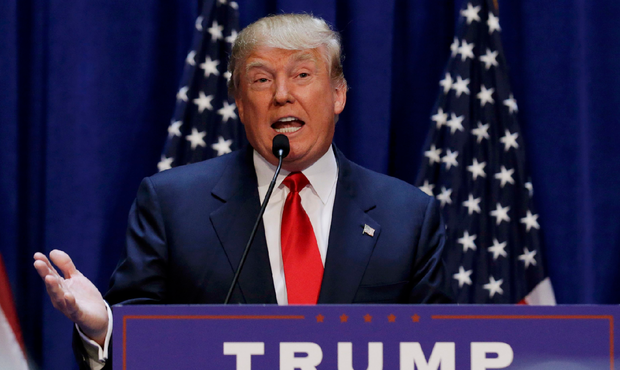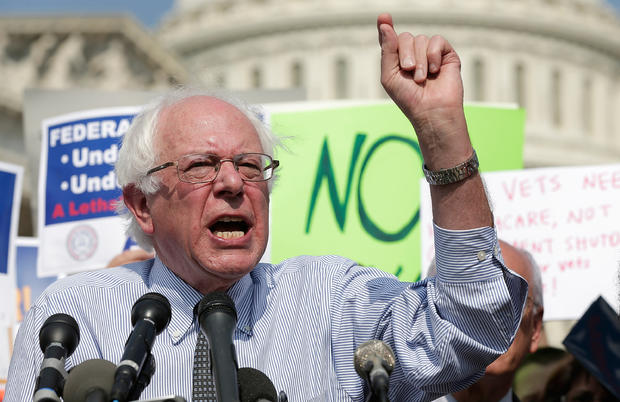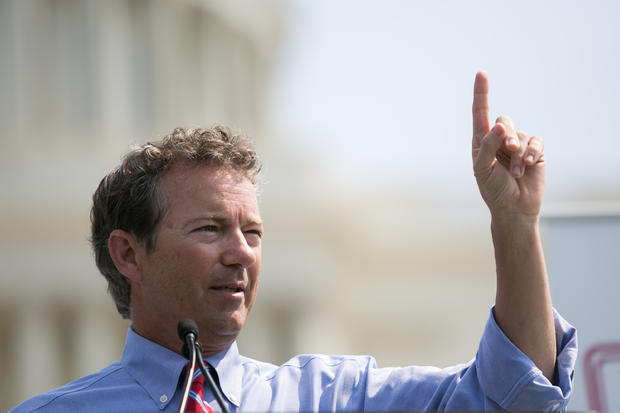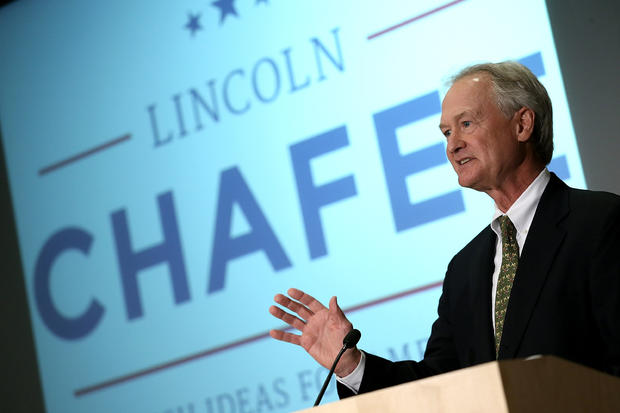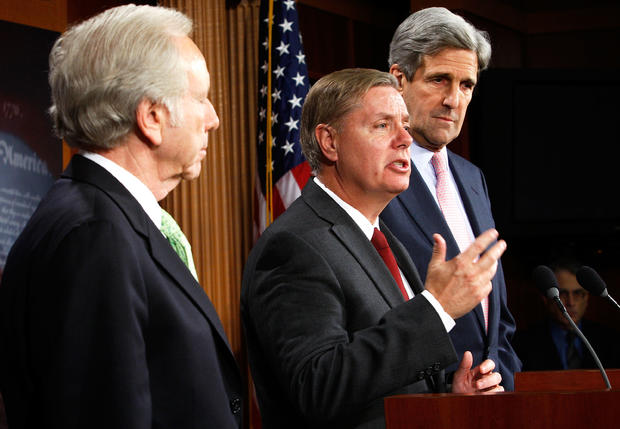What these 2016 candidates believe may surprise you
Politics is, more often than not, a predictable enterprise. The rules of the game tend to reward consideration, rather than candor. The savvy politician learns quickly that keeping your day job usually means keeping your head down.
That's doubly true for presidential politics -- a high-wire act in which a candidate's every move is poll-tested, focus-grouped, and primed for maximum appeal to the broadest possible audience at exactly the right moment.
But every now and again, the candidates manage to surprise us.
Sometimes they express an opinion that puts them at odds with a significant portion of their base. Other times they adopt a stance that flies in the face of opinions they've previously expressed. Occasionally, it's not the opinion itself that surprises, but the manner or context in which they express it.
It doesn't happen often, but when it does, it's can be a refreshing reminder that the people in public life are just that -- real people, with thoughts and beliefs that don't always fit neatly into some predetermined template.
Here's a look at six 2016 presidential candidates who have managed to surprise us:
Donald Trump on free trade
In his long speech announcing his presidential bid on Tuesday, Donald Trump said he's "totally against the trade bill for a number of reasons." He was referring to the Trans-Pacific Partnership (TPP), the 12-nation trade agreement currently under negotiation.
His stance may seem counterintuitive given his reputation as an international businessman. In fact, it may seem counterintuitive given some other statements from the very same speech he gave Tuesday: "When was the last time anybody saw us beating, let's say, China in a trade deal? They kill us. I beat China all the time. All the time," he said.
Both the Obama administration and Republicans in Congress would argue that the TPP would help slow down China's influence in the Asia Pacific region.
"We think it's absolutely essential not only for our commercial advantage, but also it has an important defense and foreign policy component to it as the countries on the Asia and Pacific rim would like to have a greater relationship with us as a hedge against an increasingly expansive China," Senate Majority Leader Mitch McConnell, R-Kentucky, said Tuesday.
While Trump said he has "a number of reasons" for opposing TPP, he only outlined one: "The people negotiating don't have a clue," he said. "Our president doesn't have a clue. He's a bad negotiator... I'm a free trader. But the problem with free trade is you need really talented people to negotiate for you."
It could be argued that the fast-track trade authority Republicans are trying to pass addresses that issue. As McConnell noted Tuesday, the fast-track bill would give authorize trade promotion authority for six years, which would "advantage the next occupant of the White House as well as this one."
Bernie Sanders on gun control
Sen. Bernie Sanders may be challenging Hillary Clinton for the Democratic nomination from the left, but he falls more toward the right than Clinton on the issue of gun control.
Hailing from a state with a strong hunting tradition, Sanders has a mixed legislative record on the issue. His most contentious vote was arguably his support in 2005 for a bill to shield the gun industry from lawsuits related to the criminal use of their products. Sanders voted for the bill in the House, while then-Sen. Clinton and then-Sen. Barack Obama voted against it. Democrats at the time had blistering things to say about the bill. "This is about politics, the power of the N.R.A. to dictate legislation," said Sen. Jack Reed, D-Rhode Island, according to the New York Times.
As a senator, Sanders also voted to allow Amtrak passengers to carry firearms in their luggage. On the other hand, the senator has supported an assault weapons ban. And in 2013, in the wake of the tragic 2012 Newtown, Connecticut mass shooting, he voted to expand background checks -- a policy he rejected in 1993.
Ted Cruz on combatting military sexual assault
Texas Sen. Ted Cruz is about as conservative as the 2016 candidates come, but this week he demonstrated that he's willing to work across party lines on certain issues like the problem of military sexual assault.
Cruz on Tuesday voted for legislation to take cases pertaining to sexual assault out of the military chain of command. The bill was taken up as an amendment to the Defense Authorization Act, but it failed by a vote of 50-49.
Cruz has pushed for the military sexual assault bill since its inception in 2013, even though it's spearheaded by liberal New York Democratic Sen. Kirsten Gillibrand. The measure is opposed by the Pentagon, congressional conservatives like Cruz's Texas colleague Sen. John Cornyn, as well as conservative policy analysts like Charles Stimson of the Heritage Foundation. "In the military, the commanding officer is the key to enforcing good order and discipline," Stimson wrote.
At a press conference Tuesday, Cruz insisted that the measure has enough bipartisan support to eventually pass. He also talked about the issue in very personal terms.
"I have two little girls who are seven and four," he said. "As I've approached this issue, I've thought about when my daughters come of age, if they choose to step up and serve the country, what rules should be in place to protect my daughters from sexual assault?"
Rand Paul on defense spending
Sen. Rand Paul, like his father before him, is best known as a libertarian-leaning Republican. He's lived up to that reputation by waging a fierce fight against the National Security Agency's sweeping surveillance programs. However, some of Paul's libertarian supporters may not realize the senator wants to increase defense spending.
Earlier this year, Paul introduced a budget amendment that would increase the Pentagon's budget by about 16 percent, adding nearly $190 billion to defense spending over two years.
At the start of his Senate career, Paul proposed cutting the Pentagon budget. Later, he put forward a budget proposal that would have slashed government spending in other areas while keeping the defense budget steady. His latest proposal puts his views more in line with his hawkish 2016 rivals like Sen. Marco Rubio of Florida.
While Paul's proposal increases the Pentagon budget, he still talks a tough game when it comes to defense spending. When asked on MSNBC last month whether he'd cut the Pentagon budget below its approximate current level of $600 billion, Paul said, "I think it's not as easy to say the exact number."
"Defense is the number one priority, and I'll spend what it takes to defend the country," he said. "But do we need more than all of the next 14 countries combined? I think it needs to be examined."
More specifically, Paul suggested the Pentagon could cut down on its bureaucracy while maintaining spending on actual military equipment.
Lincoln Chafee on the metric system
When former Gov. Lincoln Chafee of Rhode Island announced he's seeking the Democratic presidential nomination, he largely stressed foreign policy issues. That's no surprise, given that his biggest claim to fame is arguably voting against the Iraq war when he served in the Senate as a Republican.
What was a surprise, however, was his proposal to switch the U.S. to the metric system.
As a "bold embrace of internationalism," he said the U.S. should "join the rest of the world and go metric."
Even Paul Trusten, vice president of the U.S. Metric Association, was shocked Wednesday when he heard from the Wall Street Journal about Chafee's pitch. "Who?" Trusten asked. He added, "Oh, my gosh."
Trusten told the Journal that he had never heard of any presidential candidate endorsing the metric system. In fact, Chafee's own father did just the opposite. Sen. John Chafee argued in the 1970's that the government had more important things to deal with, according to MSNBC.
Lindsey Graham on climate change
Many Republican politicians are skeptical about the science behind climate change. Some believe the near-unanimous conviction of the scientific community -- that human carbon emissions are behind rising global temperatures, and that havoc awaits if we don't act to curb those emissions -- is unduly alarmist. Others accept the science but argue many of the proposed solutions would be too costly and disruptive to implement.
South Carolina Sen. Lindsey Graham, who declared his presidential bid last month, has shown a willingness to break with his GOP colleagues on the issue.
"When it comes to climate change being real, people of my party are all over the board," Graham said at a recent Council on Foreign Relations event. "I said that it's real, that man has contributed to it in a substantial way."
The GOP "has to do some soul-searching," he added. "Before we can be bipartisan, we've got to figure out where we are as a party. What is the environmental platform of the Republican Party? I don't know, either."
Graham was the sole Republican sponsor of a failed 2009 bill that would have enacted a market-based "cap and trade" system to put a price on excessive carbon emissions. The other main sponsors were then-Massachusetts Sen. John Kerry and then-Connecticut Sen. Joseph Lieberman.
Graham has framed his moderate approach to environmental issues as an expression of his Christian faith. "From a biblical point of view, we were counseled by God to be good stewards of the environment," he told Politico in April.
Still, while he disagrees with some of his fellow Republicans on the issue, he's not ready to condemn them over it. "I'm OK with the science behind climate change," he said. "But if you're not, that's OK with me."
He apparently would prefer to address the issue legislatively. He opposed President Obama's recent executive action to cap the carbon emissions from coal-fired power plants, telling Politico the president's move is the kind of regulatory "nightmare" he hoped to prevent by passing a bill.

